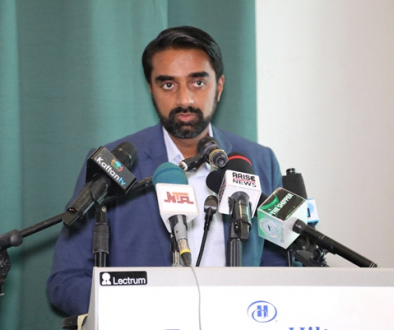That We May Continue to Blow the Whistle

The current administration has since coming to office made the whistleblowing programme a major tool for fighting corruption. It is aimed at encouraging the public to buy-in, own the anti-corruption war and persuading them to provide useful information on individuals and organisations that have violated government financial regulations, procurement procedures, mismanaged or misappropriated public funds and assets, financial guidelines, acted fraudulently or stolen public assets among others. To incentivize the public the government offers a reward of 2-5% of monies recovered to the whistleblower. The pertinent questions here are: Has this been successful? And if so, how can this be sustained?
It is worthy of note that the initiative has led to recoveries of staggering sums of monies such as $50 million found at an apartment at the Osborne Towers, Ikoyi and about $9.8million recovered from the ex- NNPC GMD Andrew Yakubu (see press for details). In addition, according to newspaper reports, it is estimated that in the last 3 months about $151 million and N8 billion has been ‘found’ through whistleblowing. In fact whistle blowing has become the major buzz word and pastime for Nigerians young and old wanting to join the army of informants. The government should therefore be commended on its success in recovering these huge sums presumed to have been looted from the national coffers, especially in these lean, austere times when the 3 tiers of government are in dire need of funds to execute much needed, high impact, development projects in critical sectors such as health, education, and agriculture.
However, for the government’s fight against corruption to be sustainable and complete it must institutionalize transparency and accountability especially as it pertains to recovered loot, stating how and for what they are used. This is very important in order to avoid the mistakes of the past where there was further diversion/re-looting of the recovered loot as was the case with Abacha recovered loot under Abdulsalam and Obasanjo regimes. Recently the World Bank said there is very scanty information on the actual amount recovered from Abacha and what is was used for. Another example is the accusation leveled against Lamorde on misuse of the recovered funds as EFCC Chair. These among others have created mistrust by the public of the agencies and personnel charged with fighting corruption. Efforts should therefore be made to ensure that the anti-corruption drive does not inadvertently incentivise another form of corruption. President Buhari and his APC party adherents during elections promised to make transparency and accountability the foundation of governance so it is therefore surprising that this regime is yet to fully disclose to the general public how much has so far been collected, from whom and what has been the cost of these recoveries. To fulfil its promise the government should hasten to put in place institutional arrangements and platforms for disseminating such information which should be easily accessible to the general public. It is equally important that the government clearly informs the general public on how it plans to spend these monies on what projects and in which sectors. The recovered funds should be channeled towards projects that would directly benefit the masses and assuage the expectations of the low income bracket in the country which would lend credence to the change mantra being preached by this current administration..
The war against corruption cannot be won without cooperation and participation of the public. Major objectives of the whistle blowing initiative therefore are public buy-in and ownership of the initiative and thus its sustainability. Some have pointed out that the seeming success recorded so far through whistleblowing has been because of the reward and not because the public believes it is their civic or societal duty or based on their personal conviction of the need to fight corruption. Some have also attributed it to revenge/retaliation by relatives and close aides of highly placed government officials against perceived sense of neglect or being shortchanged by these officials. If these assertions hold true then to make the war sustainable there is strong need for attitudinal and behavioral change by the public towards whistleblowing on looting of the public coffers. There is need for new initiatives targeting behavioral change especially of our youth that will greatly make people move towards a zero tolerance for corrupt practices.
Dr. Bala Magaji is a political-economy analyst and commentator. A member of the board of directors of the Integrity Organisation Ltd. (Gte)


